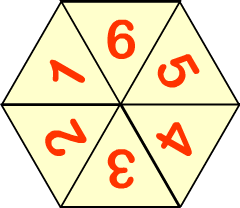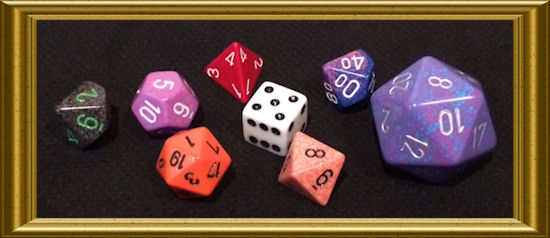

|
|
|
|
|
|
|
1 |
2 |
1 |
|
 |
 |
|
|
|
|
Remove the ads from this page and unlock other Transum goodies by signing up for a Transum subscription. This page provides you with a number of different dice simulations to use in the classroom. You can hide the dice you don't need and use the buttons and drop-down menu to configure the required dice. A different kind of random number generator can be found on the Maths Bingo page. If your pupils don't have access to this page and the department's box of dice was last seen in 1976 don't despair because most scientific calculators have a random number generating facility as can be seen in the video below: Activity 1 Tuesday, September 8, 2015 "This is a game for two players. Two dice are rolled and their numbers multiplied together. If this product is odd, Player 1 earns a point. If this product is even Player 2 earns a point. The first player to earn 20 points wins. Activity 2 Tuesday, September 8, 2015 "The first part of this activity requires pupils to imagine a coin being tossed 50 times. They should write down the results of their imaginary tossing as a list of Hs and Ts. Activity 3 Sunday, July 16, 2017 "Skunk is a two dice game for the whole class to play together and contains elements of chance and choice. You can find all of the instructions on the Skunk Game page." Do you have any comments? It is always useful to receive feedback and helps make this free resource even more useful for those learning Mathematics anywhere in the world. Click here to enter your comments. 
See Transum's ever-growing collection of Probability lesson starters, activities, exam-style questions and and investigations. |
|
|
The code powering the first dice has been adapted from code kindly made available by Steve J Robertson The code powering the polyhedra dice has been adapted from code kindly made available by Anton Natrov | |